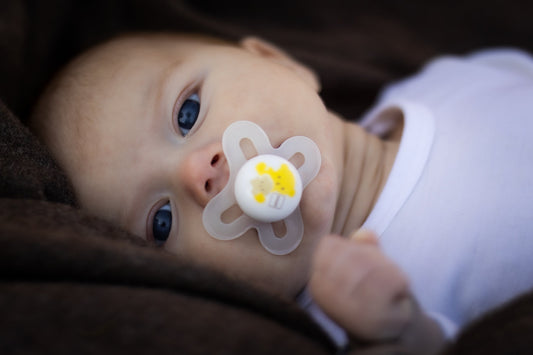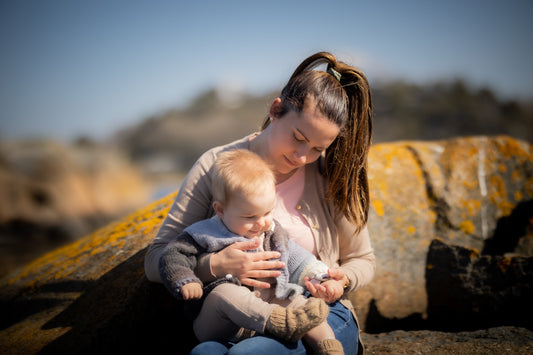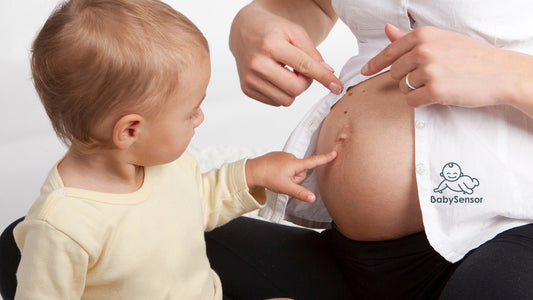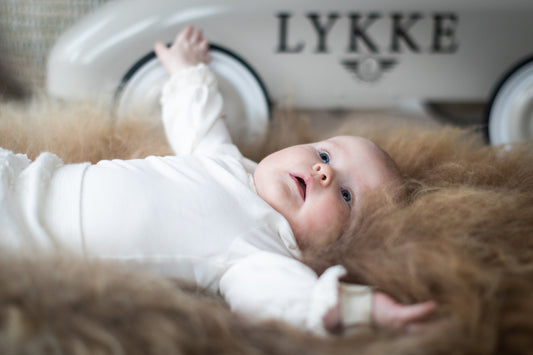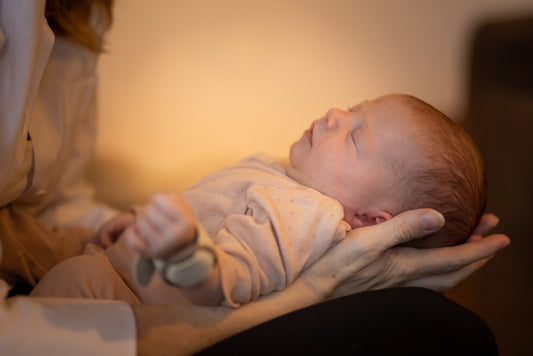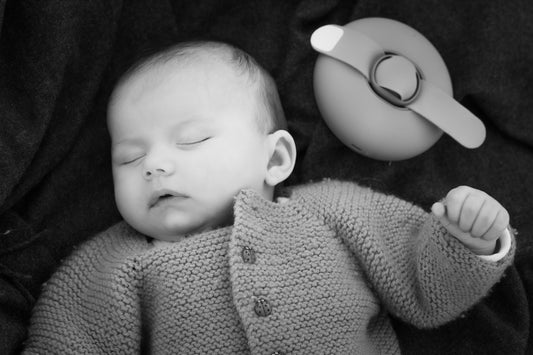
The five love languages - how can it affect a child's first (and most important) year of life?
We at the BabySensor team have interviewed our own expert on the five
the love languages and BabySensor founder Anita Fevang.
The five love languages are:
● Words of appreciation
● Quality time
● Services
● Gifts
● Physical touch
by Connie Øverby February 2023
Basic need for closeness
Anita has previously explained how she sees BabySensor and her involvement with the Five Love Languages as two sides of the same coin. It's all really about the same thing for this entrepreneur: creating secure people, especially with a focus on children. The more secure the child's attachment is in the early stages, the better their self-esteem and development, the sociologist claims.
The BabySensor is designed to help parents gain increased security and, not least, quality of sleep. The point of this, for the founder Fevang, has always been about the ability to be actively present during the magical childhood years. Fevang explains that one's own energy is essential to achieving the good attachment.
The need for closeness has not disappeared, even though mom and dad are adults.
Growing up with good care, security, connection and love, most of us develop into well-functioning, independent individuals. However, the need for closeness and recognition and the knowledge that we are important to other people is not something that goes away.
The sociologist says that evolutionarily and developmentalally we are still herd animals. We have a need to belong, and to experience a so-called special and close connection. Perhaps you have noticed that these needs have increased in connection with pregnancy or new parenthood?
Fevang firmly believes that children are happy when their parents are happy. She explains that
That's why it's important to fill up each other's “love tank.” A child's first years are demanding, and feeling loved helps us cope with the upheaval better.
The security mom and dad seek; are you (still) here for me?
Understanding that an advanced baby monitor can increase the feeling of security for mom and dad while the pod is sleeping is pretty obvious. But, what is the connection between a technical “dummy” and a communication tool, which was originally designed to help couples who were struggling? The founder of BabySensor enthusiastically talks about the connection: There is something called emotional security. In short, this is about the security of being good enough, of being important to the other, and perhaps also a fundamental question: Are you there when I need you?
We have limited time and energy. That's why we must be conscious of taking care of our relationship.
When your baby is sucking on your breast and needs to be rocked and held for hours, you may not have enough time or energy to take care of yourself, or your partner's needs. However, in order for your relationship to survive the difficult first year of your baby's life, it may be wise to spend time on what is most important for your partner to thrive.
That's precisely why we should find out and learn to "speak" our partner's most important love language.
If the man is great at buying thoughtful gifts, while she is most concerned with
undisturbed quality time together, you can end up talking past each other without thinking about it. The man may wonder if he is unimportant because she forgot about Father's Day, while she, in turn, may feel unloved because the man prioritizes computer games when the baby has finally fallen asleep for the evening. Fevang explains that it is sad, especially since these are needs we often don't talk about, and mistakes we make without knowing it.
With a “full tank” it is easier to tolerate everything from diaper changes to breastfeeding problems and little sleep.
If, on the other hand, the couple learns each other's language, surprisingly little is needed to please the other person. Maybe she can buy his favorite chocolate from the cafe, and
maybe he can ask her out on date night once a week? If it's too early to
babysitting, a nicely set table in a different room from the baby could be the solution. Then you should of course use the BabySensor, says the entrepreneur with a laugh.
The mother of four and entrepreneur is convinced that small things can have a big impact. Knowing that the baby monitor will notify you if your child is having trouble breathing can be enough to lower your shoulders and just have that good conversation, a form of quality time with your lover.
Making a favorite dinner for someone whose main love language is gifts can be worth its weight in gold.
Can a “full tank” make you a better parent?
Fevang believes that this is possible. It is easier to see the needs of others if you yourself feel that your own needs are being met. Getting confirmation from someone you are close to is exactly such a need. When we walk around with a full tank, rather than an empty tank, she believes that we can more easily become our natural, instinctive and good version of ourselves as a mother or father. If the conditions around us are safe and normal, we will experience less stress. Then it is easier to be actively present and to take into account the baby's many needs.
Babies communicate persistently, without necessarily using words. The founder believes that it is easier to pick up on the various signs that the baby shows us if we sleep better, if we feel secure in our relationship, and especially if our mental health is okay. The signs that the baby communicates with are everything from crying sounds, facial expressions, movements of the mouth, head, arms and body. In addition, there are of course glances, eventually smiles and possibly also bodily sounds such as sneezing and hiccups.
Can the love languages be used with the baby?
The BabySensor founder explains that the vast majority of us instinctively use all five
the love languages for the baby. This comes completely naturally, and is not something we need to be taught. We run around and do services 24/7, and we instinctively feel that physical proximity to the baby is the only natural thing. Fevang says that she herself has chosen to co-sleep with all four children in the beginning, without even knowing anything about the importance of physical touch. In most cultures and times, people have traditionally had children close to their bodies.
Furthermore, we use words of appreciation, and praise the child whenever she burps and smiles, and we love quality time with the baby. Often we can sit and just watch the facial expressions, and feel fascinated by the entertainment for ages. We also feel the need to give gifts, often without the baby actually needing the things we buy.
Anita Fevang: Sociologist, Expert on the Five Love Languages and Founder of BabySensor
Photo Heidi Grøperud

